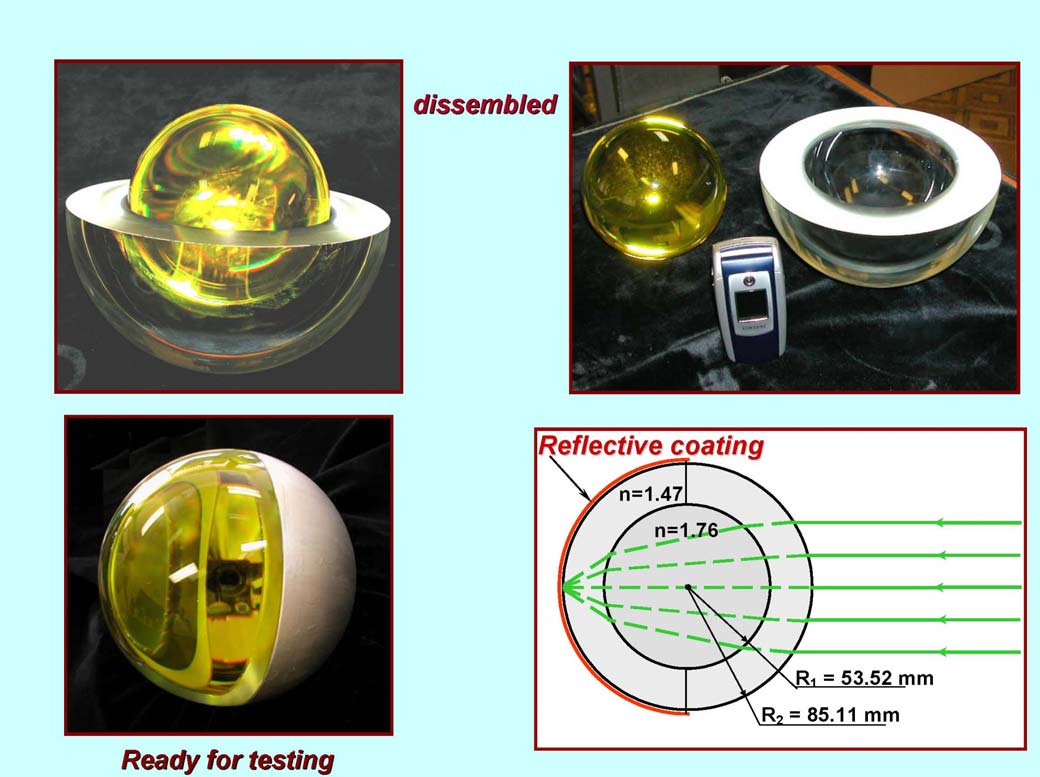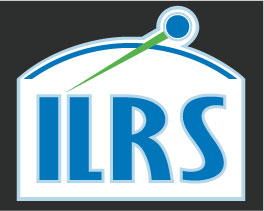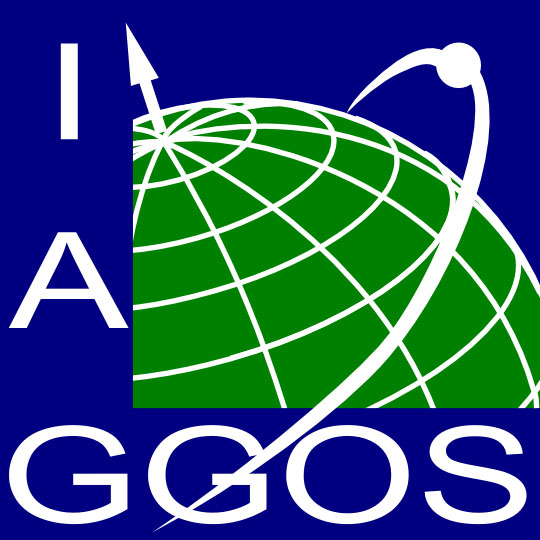
BLITS
Jump to: Mission Objectives, Mission Instrumentation, Mission Parameters, Additional Information
Mission Photos:

BLITS (Courtesy of IPIE)
Mission Objectives:
The BLITS (Ball Lens In The Space) retroreflector satellite has been developed and manufactured by the FSUE IPIE in accordance with the Federal Space Program of Russia and Agreement between the Federal Space Agency of Russia and International Laser Ranging Service from January 10, 2006. The purpose of the mission is experimental verification of the spherical glass retroreflector satellite concept as well as obtaining SLR data for solution of scientific problems in geophysics, geodynamics, and relativity by millimeter and submillimeter accuracy SLR measurements. The "target error" (uncertainty of reflection center relative to the CoM position) is less than 0.1mm, and the Earth magnetic field does not affect the satellite orbit and spin parameters. SLR is the only source of POD information.
The BLITS nanosatellite consists of two outer hemispheres made of a low-refraction-index glass (ЛК6 type) and an inner ball lens made of a high-refraction-index glass (ТФ105 type). The ball lens radius is 53.52 mm, the total radius of the spherical retroreflector is 85.16 mm. The hemispheres are glued over the ball lens; the external surface of one hemisphere is covered with an aluminum coating protected by a varnish layer. All spherical surfaces are concentric. The satellite total mass is 7.53 kg. A small spherical retroreflector of the same type (6cm in diameter) was fastened to the Meteor-3M spacecraft and tested during its space flight (2001-2006).
The BLITS-M satellite launched on December 27, 2019. The mission contacts reported that the spacecraft failed to separate from the orbital insertion unit and therefore cannot be tracked by the ILRS network.
Mission Parameters:
| Satellite | BLITS | BLITS-M |
| Sponsor: | IPIE | Roscosmos, JC "RPC "PSI" |
| Expected Life: | 5 years | 10 years |
| Primary Applications: | Technology Experiments | Calibration of SLR stations |
| Primary SLR Applications: | POD | POD |
| COSPAR ID: | 0904907 | |
| SIC Code: | 5558 | 5562 |
| Satellite Catalog (NORAD) Number: | 35871 | |
| Launch Date: | September 17, 2009 | December 27, 2019 |
| NP Bin Size: | 30 seconds | 30 seconds |
| RRA Dimensions: | 85.16 mm radius | |
| RRA Shape: | Spherical | Spherical |
| Reflectors: | 1 spherical retroreflector | |
| Altitude: | 832 km | 1500 km |
| Inclination: | 98.77 degrees | 82.5 degrees |
| Orbit: | Circular orbit, sun-synchronous | Circular |
| Orbital Period: | 101.3 min | 115.825 min |
| Eccentricity: | 0 degrees | |
| Mass: | 7.53 kg |
Additional Information:
Publications:




